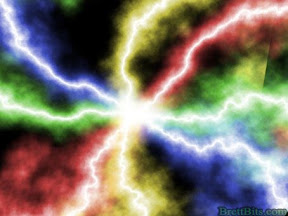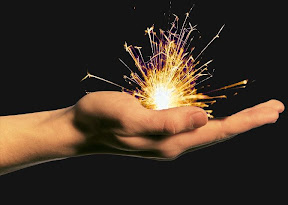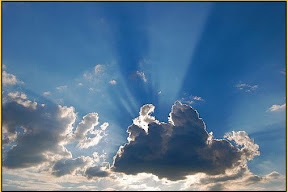Satsang is probably one of the most misunderstood concepts in modern-day spirituality. In today’s world of consumerism, when people are on the constant look-out for quick fix solutions to their destructive way of life, any form of satsang comes as a reprieve. But the question that every true spiritualist must incessantly ask is whether he in truly indulging in the correct form of satsang; for in today’s day and age the term satsang has been grossly manipulated and deviated to suit the tastes of capitalist organizations that are bent upon making a quick buck out of people’s qualms. So indeed what does true satsang constitute?
Satsang literally means good company. So in reality, when a group of like-minded people come together in a bid to meditate and reflect upon the intricacies of life, it becomes a satsang. A satsang can constitute anything, from simple meditative exercises to chanting. Even varied forms of entertainment can be included in a satsang. However these art-forms should necessarily lead the seeker to a greater truth; for the realization of that ultimate truth is the real motive of satsang. True satsang never takes the form of any random social gathering. It is not a place to congregate and discuss your business goals. Neither is it a place to try and make new friends; or new enemies for that matter! Satsang is simply a collective effort to try and know the reality behind the illusion of life; try and find the true gist of life; an endeavor to find the true self. Hence every individual who attends the satsang must attend it with the sole motive of self-realization.
So if satsang is ultimately centered on the ‘self’, then why is it necessarily an activity that is carried out in a group? The answer to that question lies in the fact that man on his own accord can hardly accomplish anything. The mind of the average person is fickle and hence is easily deviated from the main goal. Hence to prevent this, people congregate in mass to try and reach a common end. This facilitates many different factors at the same time. When people worship, pray or meditate in mass, their energies get congregated and amplified. Owing to such amplification it creates a very strong energy field amongst the people who are participating in the satsang. Thus within that energy field, each and every individual starts to reach the same truth inwardly. Owing to the presence of such a potent energy field, the mind remains steady and resolute. Thus there is little interference from within the individual’s own self. This necessarily makes him more receptive to the knowledge and the realization that is to be gained from that respective form of meditation, chanting or prayer.
In the end, a person who regularly practices satsang can see its progressive effect on his own life. All the human weaknesses of despair, regret and desperation slowly start to wilt away as the seeker remains constantly in connection with the supreme divine entity. The constant energy field that surrounds the seeker in his regular satsang induces a great change in him. In the end he is left with no insecurities and no fear in his life, for through the power of true satsang, he starts to experience God within himself. Thus does satsang ultimately lead him towards his own inner kingdom of divinity; as the seeker exalts in supreme ecstasy and ultimate joy…
Chapter 1. “True Satsang” in Audio
Back to Index.
Many times people are at a loss when it comes to making certain decisions in life. People necessarily are torn between good and bad. Essentially when it comes down to it, we realize that indeed there is little in this world that can be completely categorized as being good or being bad. Indeed it is the way that we choose to look at things that matters in the end. Hence once again the question of it being good or bad is indeed non-existent. Much in the same way, in the daily walks of life, we cannot categorize our acts as being truly good or truly bad. So the fundamental question that arises after this deduction is that how can a human being truly live in this world. If in the end there is no good and bad; if in the end everything is relative, how can man truly make sure that he lives his life in the ideal way.
The spiritualist comes to this question at some point in his life. As he starts to question his very existence, he starts to realize that indeed there is little thought or little consternation to his actions. However once he starts to carefully self-introspect to try and get to the motivation that goes behind each of his acts, he starts to realize that indeed there is little that can be truly categorized as being good or bad. So in the end he starts to question his very lifestyle as he becomes aware of the effect that his acts have on his destiny. In his quest to find the ideal way in which to lead his life, the true spiritualist in the end finds that he necessarily has to go beyond the duality of things in order to find a greater way of life. He has to go beyond good or bad; he has to go beyond right or wrong; he has to hence come to a point where he can regard any situation dispassionately and act accordingly to get the best results out of any situation.
Hence we come to the point of the matter. It is the wholesome creativity and productivity that you inculcate in life that truly makes a difference in the end. It does not matter if you were good or bad; as long as you are productive, you will necessarily get good results in life. In the end the karmic equation is just that; it’s an equation. There is a cause to every effect and necessarily the good or bad ceases to matter for in the end it is you yourself who has to bear the burden of your actions; may they be good or bad.
Thus the spiritualist comes to a point where he truly realizes that he indeed cannot make everyone happy; for if a man is to truly live in this world, he cannot refrain from “bad acts”. At times these acts are done in a bid for survival and hence are imperative at that very moment. However, if the seeker in the end realizes that he can get beyond that duality of good and bad by keeping a creative and productive approach in life, he can truly make his life seem worthwhile. Hence today I would like to exhort to each and every one of you, to truly see, if you are being creative in any given situation. Introspect your actions, search your feelings, meditate on your thoughts; and you will realize that you seldom are. Whenever you have a choice to go either way in any situation, choose the choice that is most productive; don’t think about it being good or bad; just think how much it benefits others. Simply strive not for your own ends; care for those around you; aim to be a creator rather than a conspirator and the journey of life will surely prove to be a joy-ride for you…
It might be surprising for some to see this topic being discussed here on the tlp weblog probably because people don’t generally associate ‘reality’ and ‘rationalism’ with spirituality. However in life, there are no clearly drawn lines and all subjects are indeed interwoven to make up the matrix of human existence. It is the inability of people to cognize this fact that often leads them to face abject failure in some walks of life. At times, people forfeit some opportunities just because they don’t appeal to their minds; at times they ridicule greatness just because it falls outside the scope of what they consider to be ‘rational’; and at times people even refuse to accept the truth that stares them in the face…all owing to the fact, that they just can’t sum it up.
Rationality is an important factor of life. Rationality is the mind’s scale of whether things measure up to be real or not. At times, the human mind vehemently denies some possibilities, for it simply does not feel them to be rational enough. Indeed our sense of rationality is developed owing to the influence that our surroundings have on us. For instance, a boy who has been brought up in America won’t feel the possibility of people fighting over the basic necessities of life to be rational. Similarly a child raised in the deserts of Africa would find the concept of frivolous indulgence as irrational. Thus both would simply deny the fact that does not appeal to their mindset. Fact of the matter is that reality persists beyond the bonds of rationalism. Reality does not care if you think that it is rational or not; it does not care if people think it to be possible or impossible. Reality simply exists; and its existence is the proof of its rationality.
That ultimately brings us to the topic at hand. Many pseudo-intellectuals perceive spiritualists all over the world to be nothing but superstitious fools. The fact that a person believes in a higher power and aspires to that divine entity is something that these people utterly desist. They fear to acknowledge the fact that there might be things beyond the scope of their puny intellect; that indeed there are aspects of life that they simply cannot control. The modern day rationalist is afraid to acknowledge the aforementioned fact for he lives in a constant fear; he lives in an induced sense of falsified security that vanishes in an instant, if he were but to acknowledge the unknown. Thus with denial, people satisfy themselves that there indeed is nothing more to life than what meets the eye. Owing to this, they indeed lose out upon the many treasures that life has to offer them; treasures that could be adorned upon them, if they would simply take a leap of faith.
Thus in the end, we find that it is not rationality or intellectualism that wins through in life. It is faith; it is faith that is unshakable in its very essence that is responsible for the greatest of achievements known to mankind. It is faith that in the end accomplishes greatness and a man who has faith and perseverance is a man with endless possibilities. Why? Because, faith gives us the hope that we can indeed change reality; it gives us the motivation to walk with a backload of qualms on a road of thorns underneath a burning sky; all for the sake of achieving something; for the sake of completing a purpose. Thus in the end it is faith that even considers possibilities that appear fantastic to the rational mind; and it is faith that in the end transforms those possibilities into reality.
And when faith in the end produces the results, the pseudo-intellectual mulls in after-thought…How? How could someone achieve something that was so beyond the scope of his capabilities? How something that was so irrational could be indeed true? How could I not foresee this? The reason is that faith can truly work miracles…miracles that transgress all bonds of rationality, possibility and probability; miracles that in the make you believe in the existence of a greater power. It imbibes in you a sense of greater purpose. Thus at the end, I would say naught else but leave you with only a few chosen words to bear in mind… KEEP THE FAITH…:)
Back to Articles.







